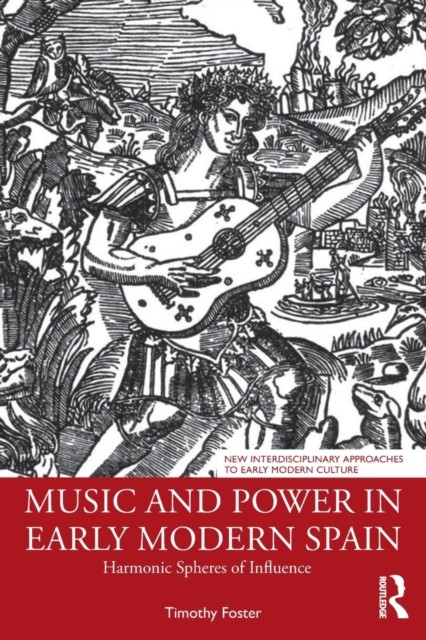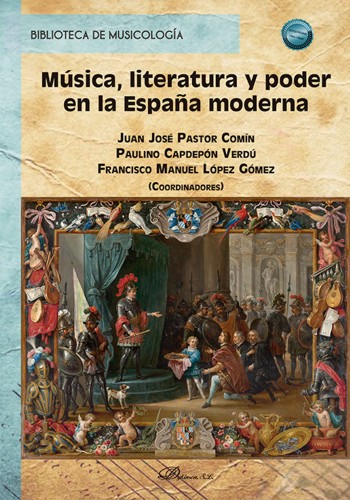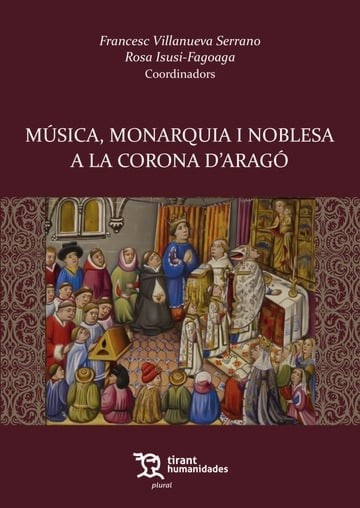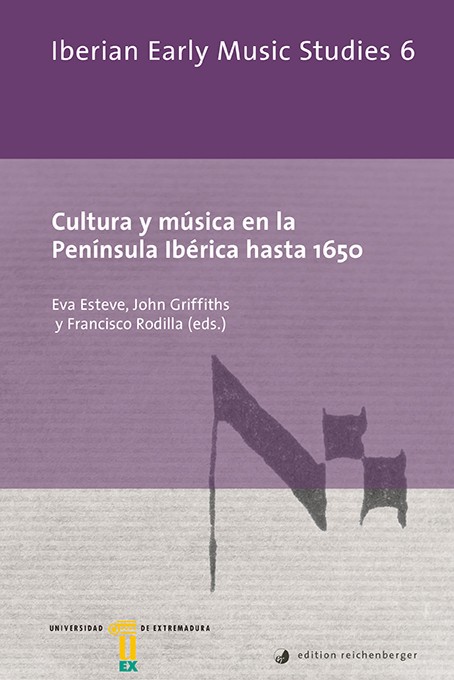
Music and Power in Early Modern Spain: Harmonic Spheres of Influence
Foster, Timothy M.
Routledge. 2021Ficha técnica
- EAN: 9781032053585
- ISBN: 978-1-03-205358-5
- Editorial: Routledge
- Fecha de edición: 2021
- Encuadernación: Rústica
- Dimensiones: 23x41
- Idioma: Inglés
- Nº páginas: 176
No disponible temporalmente
Disponibilidad sujeta a la información del editorPVP. 62,95€
Añadir a la Lista de deseos
Early Modern Spain examines the role of music in sixteenth and seventeenth century literature and its influence on the broader Empire. This Transatlantic approach provides upper level students and researchers with an understanding of how musical ideas emanated from Spain to the Indies, but also the resonance and response from colonial subjects. Engaging with sources such as songbooks, literary tales, chronicles, opera libretti, and poetry, this book show how music influenced early modern Spanish culture, providing students and researchers with an interdisciplinary approach to understanding the history of early modern Spain and its culture.
The questions of who played music, what types of music they played, and who was (not) listening are central concerns are evaluated to show educated readers how early modern Iberians saw the power of music at work in their society.
CONTENIDO:
List of Illustrations
Acknowledgments
Introduction: Music and Myth from Orpheus to Tubal
-Spanish Orpheus
-Pythagoras and providence: Theoretical bases of early modern thought
-Prelude and fugue
-Jubal, Tubal, and the foundation of an Iberan musical monarchy
1. Songs in the Key of Spain: Vihuela and the Ideology of Musical Humanism
-David's secret chord: The power of stringed instruments in musical humanism
-"Translatio musicae": Providentialism in the vihuela front matter
-Remembering and forgetting: "Romances" and Catholic humanism
-Conclusion
2. Cervantes Off-Key: Irony and Imperialism in the "Novelas ejemplares"
-"True" and "false" music in Cervantes's Spain
-Miracolous transpositions: Music in "La gitanilla" and "La ilustre fregona"
-Black Orpheus?: The transgresive power in music in "El celoso extremeño"
-Conclusión
3. Pre-Columbian Providentialism: Musical Origins in Andean Imagination
-"Music accompanies empire": Providentialism in colonial chronicles
-The "four natural voices" of the Inca Garcilaso
-Guaman Poma's dual vision of the origin of Andean music
-Conclusion
4. The King's Polyphony and the Composing of the Americas
-Musical evangelization in the viceroyalty of Peru
-Garcilaso's mestizo choirs: Education, polyphony, and religious celebrations
-Guaman Poma's musical appeal to the monarch
-Conclusion
5. Four-Part Harmony for the Four-Part Empire: Calderón's Musical Metaphors at the Court of Philip IV
-The fourth planet: Imperial politics and crown-sponsored theater
-Air and affect in musical humanism and musical theater
-Elemental discord and operatic resolution
-Conclusion
6. Immaculate Composition: Religion, Race, and Propaganda
-The "musical iconography" of Mary Immaculate
-Musical humanism and the Immaculate Conception
-"Todo el mundo": Multiethnic grassroots propaganda in Seville
-Conclusion
Conclusion: Orpheus Looking Back
-Ritornello
-Poco a poco crescendo
-Da capo a fine
Appendix
Bibliography
Index





